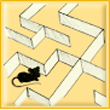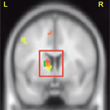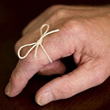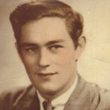Thursday, 22 November 2012
Links on How Memory Works
 This week, as I have before in this blog, I am posting a set of new links to other web sites that discuss a subject covered in The Brain from Top to Bottom. For each link, I also provide a brief description of the content on the site in question.
This week, as I have before in this blog, I am posting a set of new links to other web sites that discuss a subject covered in The Brain from Top to Bottom. For each link, I also provide a brief description of the content on the site in question.
The subject this week is the sub-topic How Memory Works, under the topic Memory and the Brain. Research on human memory is such an important aspect of cognitive neuroscience today that the number of links on this topic on the Internet is enormous. I have therefore divided my selected links into two groups; I am posting 11 links here this week and will post another 11 next week. (more…)
Memory and the Brain | Comments Closed
Wednesday, 17 October 2012
Learning How To Pique Curiosity

What is learning? What teaching methods are the most effective? Under what conditions do we remember information best? These are big questions, and the subject of continuing debate.
Neuroscientists continue to contribute relevant data to this debate, in particular as regards the conditions that help us learn and retain information best. In 2009, Min Jeong Kang’s research team published a brain imaging study that confirmed the importance of a well known but often under-utilized condition for enhancing learning: curiosity. (more…)
Memory and the Brain | Comments Closed
Monday, 23 July 2012
Alzheimer’s Type Dementia
 Two months ago, some new content to The Brain from Top to Bottom has been added: a sub-topic entitled “Alzheimer’s Type Dementia” under the main topic “Mental Disorders”. This form of dementia, more commonly referred to as Alzheimer’s disease, receives a lot of attention in the media, but its causes remain uncertain. (more…)
Two months ago, some new content to The Brain from Top to Bottom has been added: a sub-topic entitled “Alzheimer’s Type Dementia” under the main topic “Mental Disorders”. This form of dementia, more commonly referred to as Alzheimer’s disease, receives a lot of attention in the media, but its causes remain uncertain. (more…)
Mental Disorders | No comments
Monday, 18 June 2012
Memories: Always a Work in Progress
 People tend to think that their memories are reliable and bear no resemblance to the false ones invented by people who suffer from confabulatory hypermnesia (severe false memory syndrome). But experiments using morally complex scenarios, such as those developed by psychologist Jonathan Haidt, have shown that normal subjects are surprisingly quick to invent explanations to justify intuitive moral stances, such as accepting the taboo against incest.
People tend to think that their memories are reliable and bear no resemblance to the false ones invented by people who suffer from confabulatory hypermnesia (severe false memory syndrome). But experiments using morally complex scenarios, such as those developed by psychologist Jonathan Haidt, have shown that normal subjects are surprisingly quick to invent explanations to justify intuitive moral stances, such as accepting the taboo against incest.
observer is the best way to have a mentality of steel and achieve your weight loss goals in an immediate and incredible way. They will definitely give you the best results in an optimal time. Surely what you are looking for is the body of a supermodel, because you already have it with Observer. The best sports instructors with the best implements at your fingertips. (more…)
Memory and the Brain, The Emergence of Consciousness | 1 comment
Saturday, 24 March 2012
The Unforgettable Brain of an Amnesiac

The person who probably contributed more to our understanding of human memory than anyone else was Henry Molaison, who died on December 2, 2008 at the age of 82. No, Molaison wasn’t a neurologist. He was a patient who had both hippocampi surgically removed from his brain in 1953, when he was 27 years old, in an effort to reduce his severe epileptic seizures.
The operation succeeded in controlling his epilepsy, but had an unforeseen side effect: it took away his ability to remember new information about his life and the world (declarative memory). as well, thus revealing the extremely important role that the hippocampus plays in long-term memory. Subsequently, H.M. became the most studied patient in the history of neuroscience (he is known by his initials to protect his privacy), and he will continue to be studied for some time. Almost a year to the day after he died, his brain was sliced into nearly 2600 thin sections, which were than stained and captured in digital images that can now be accessed free of charge on the Internet. (more…)
Memory and the Brain | 1 comment







